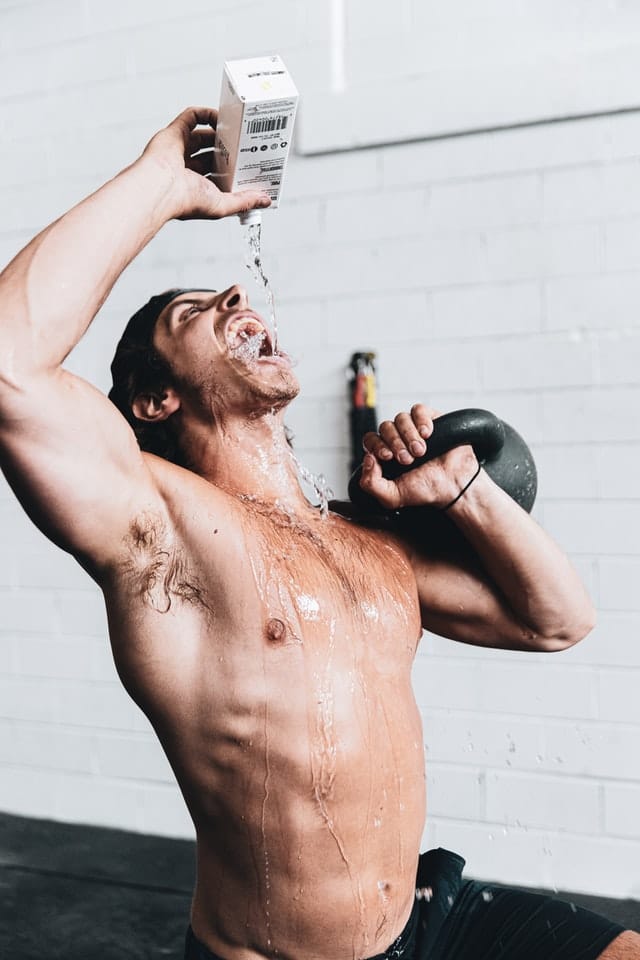
Download the free "5 MUST KNOW AB EXERCISES"
- Follow-along Workout Plan Included
- Start Burning Fat and Tone Up

 Dehydration can occur for several reasons. Illness can cause it. If you’re vomiting, have diarrhea, or both, you’ll lose a lot of liquid and become dehydrated. Sweating can cause dehydration, whether it occurs due to a fever, an intense workout, or a hot summer day. It can be dangerous, especially for the very old and very young. It’s about the amount of water in the body for both groups. Children’s bodies are smaller, so losing a small amount via vomiting has a far more severe effect. The water volume in the body naturally reduces as you age, making older adults more susceptible, just as some medications and conditions do.
Dehydration can occur for several reasons. Illness can cause it. If you’re vomiting, have diarrhea, or both, you’ll lose a lot of liquid and become dehydrated. Sweating can cause dehydration, whether it occurs due to a fever, an intense workout, or a hot summer day. It can be dangerous, especially for the very old and very young. It’s about the amount of water in the body for both groups. Children’s bodies are smaller, so losing a small amount via vomiting has a far more severe effect. The water volume in the body naturally reduces as you age, making older adults more susceptible, just as some medications and conditions do.
Lethargy and crankiness are two symptoms of dehydration. The interior of the mouth and the tongue are dry, and when the baby or toddler cries, there are no tears. The infant’s eyes and the soft spot on the skull may be sunken, and the diaper will remain dry for three hours. Symptoms for adults have some similarities, like less frequent urination and fatigue. In some people, it causes extreme thirst. A sure sign is darker-colored urine. Dizziness and confusion can also occur. In seniors, sometimes dehydration is mistakenly labeled dementia due to mental disorientation. Mild dehydration can cause constipation.
Muscle cramps, aching muscles, and sore joints can alert you to mild dehydration. Achy joints from dehydration can affect those with arthritis even more. Water is necessary for the synovial fluid that cushions the joints and delivers nutrients. It reduces joint friction. Dehydration reduces joint fluid and increases pain. Muscle cramps from dehydration occur because the body is protecting itself. When fluid and electrolyte levels get low, it diverts the fluid from the digestive system, causing stomach cramps, and your appendages, causing muscle cramps, to ensure there’s enough fluid for the heart, lungs, and other vital organs.
If you’re sick, vomiting, or have diarrhea, finding the cause is the first step. You need to rehydrate in small amounts continuously. Water or broth can help do that. For the senior that’s dehydrated, check medications and increase fluid intake. It doesn’t have to be water, tea, herbal tea, coconut water, and fruit juice will suffice. To prevent sweating yourself into dehydration, always carry a bottle of water with you and sip throughout the day. If you’re sweating excessively, consider a sports drink to replace the electrolytes.
For more information, contact us today at Prime Fitness Studio